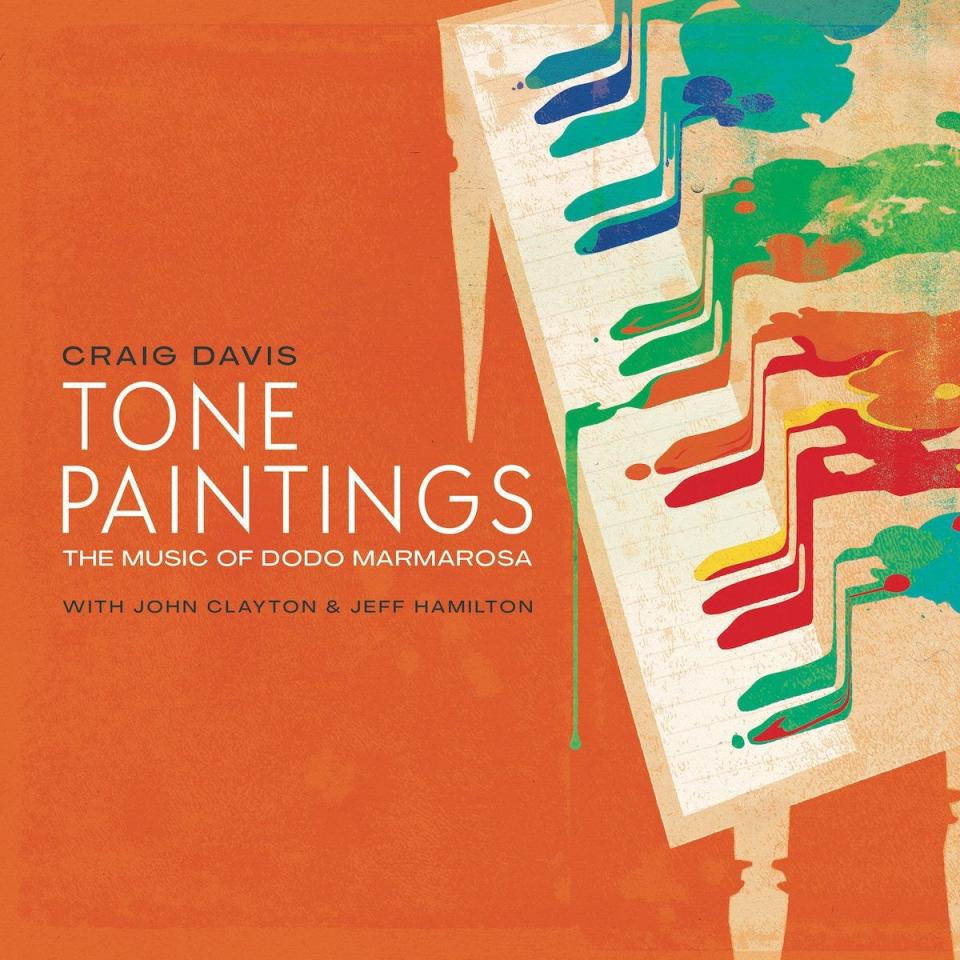Notes and tones: Three is no crowd, with this trio of fresh recordings
- Oops!Something went wrong.Please try again later.
Here’s a three-piece potpourri comprised of some very recent releases and some that snuck past me — until now.
Martin Wind, “My Astorian Queen” (Laika)

Subtitled “25 Years On The New York Jazz Scene,” German-born Martin Wind, the adept bassist, composer and bandleader, is referencing and demarcating his arrival in New York City, which took place thanks to a scholarship. At this point, Wind is a busy, busy person who works with a slew of top-tier musicians both within the city and throughout the world.
In this instance, he surrounds himself with three of his kindred musical spirits. Multi-instrumentalist Scott Robinson takes on the tenor and bass saxophones, clarinet and trumpet at different junctures. Pianist Bill Mays and drummer Matt Wilson comprise the other two-thirds of the rhythm section. Listening, it’s quite obvious the four musicians have worked together in a multitude of settings.
Wind himself states in the liner notes: “The musicians on this album stand out as the three most important musical partners since my move across the Atlantic Ocean.”
On this session, Wind purposefully looks to establish, and frequently change, moods and tempos during the course of the nine-selection set. He does so quite fluently. The title cut, an enjoyable, bass-led ballad, shows his appreciation for his partner, Maria.
The album closes with an atypical, bass-driven duo: a march-like but sparse rendition of “New York, New York” that also features Wilson’s humorous, tongue-in-cheek drum splashes; and it opens with Thad Jones’ bouncy, delicious “Mean What You Say,” allowing both Mays and Robinson to shine.
Al Foster, “Reflections” (Smoke Sessions)

Now on the cusp of 80, drummer Al Foster’s resume is more than impressive — it’s imposing. To place him in some sort of context, Foster can be heard on numerous Miles Davis recordings throughout the 1970s and into the mid-'80s. There’s his work with pianists such as Herbie Hancock, Joanne Brackeen, Kenny Barron, Tommy Flanagan and McCoy Tyner. Such associations barely represent the tip of the sonic iceberg in a career now in its sixth decade.
Recorded earlier this year, the drummer leads a quintet comprised of “younger” — but not so young in experience — players. Joining Foster are a coterie of extremely talented mid-career musicians: saxophonist Chris Potter, trumpeter Nicholas Payton, pianist Kevin Hays and bassist Vicente Archer.
The group delivers readings of some classic tunes, such as Sonny Rollins’ “Pent-Up House,” Davis’ “Half Nelson,” Tyner’s “Blues On The Corner” and Joe Henderson’s “Punjab.” It is not surprising that all-but Archer contributes an original, as does Foster, whose “T.S. Monk” and “Monk’s Bossa” bookend this disc.
While Foster’s leadership is omnipresent on “Reflections,” his well-versed bandmates are extremely comfortable both following his lead and leaving their respective modern improvisational imprints throughout this 65-minute-plus recording. This is trans-generational post-bop, up-to-the-minute jazz at its best.
Craig Davis, “Tone Paintings” (MCG Jazz)

I have previously mentioned Pittsburgh’s substantial jazz heritage — the almost countless number of players who called it their home, many who would eventually stand quite tall among jazz’s most legendary figures.
The hour-long PBS documentary “We Knew What We Had” is a compressed story, produced and delivered to the network by Manchester Craftsmen’s Guild, itself now a longstanding Steel City multi-disciplinary institution. Not surprisingly, the documentary, while thorough, could not possibly tell the entirety of Pittsburgh’s jazz history in one hour.
And let’s be real — it was not designed to match Ken Burns’ gargantuan, episodic “Jazz.” MCG also has recorded and produced dozens of recordings, earning a number of Grammys while doing so.
One of Pittsburgh’s, and jazz’s, most-respected but historically less-appreciated pianists is Dodo Marmarosa. In an attempt to draw more attention to Marmarosa, Pittsburgh pianist Craig Davis, working with MCG, has released “Tone Paintings,” an 11-composition set; all but one title, Davis’ own “A Ditty For Dodo,” is composed by Marmarosa.
An immaculate piano trio presentation, the younger Davis had to enjoy having a pair of the tastiest musicians on the planet working alongside of him, in the form of bassist John Clayton and drummer Jeff Hamilton. At points on this disc, one is reminded of Gershwin’s expansive suites; one can hear the work of other Pittsburgh artists — both Ahmad Jamal and Errol Garner come to mind.
That said, I too am among those who, when thinking of Marmarosa, know of his measurable and impressive work, but have to admit his name is not the first pianist that comes to my mind. The delightful presentation housed within “Tone Paintings” will hopefully register — as it should — and rectify that, as it also should.
Jon W. Poses is executive director of the “We Always Swing” Jazz Series. Reach him at jazznbsbl@socket.net.
This article originally appeared on Columbia Daily Tribune: Notes and tones: Three is no crowd, with this trio of fresh recordings

